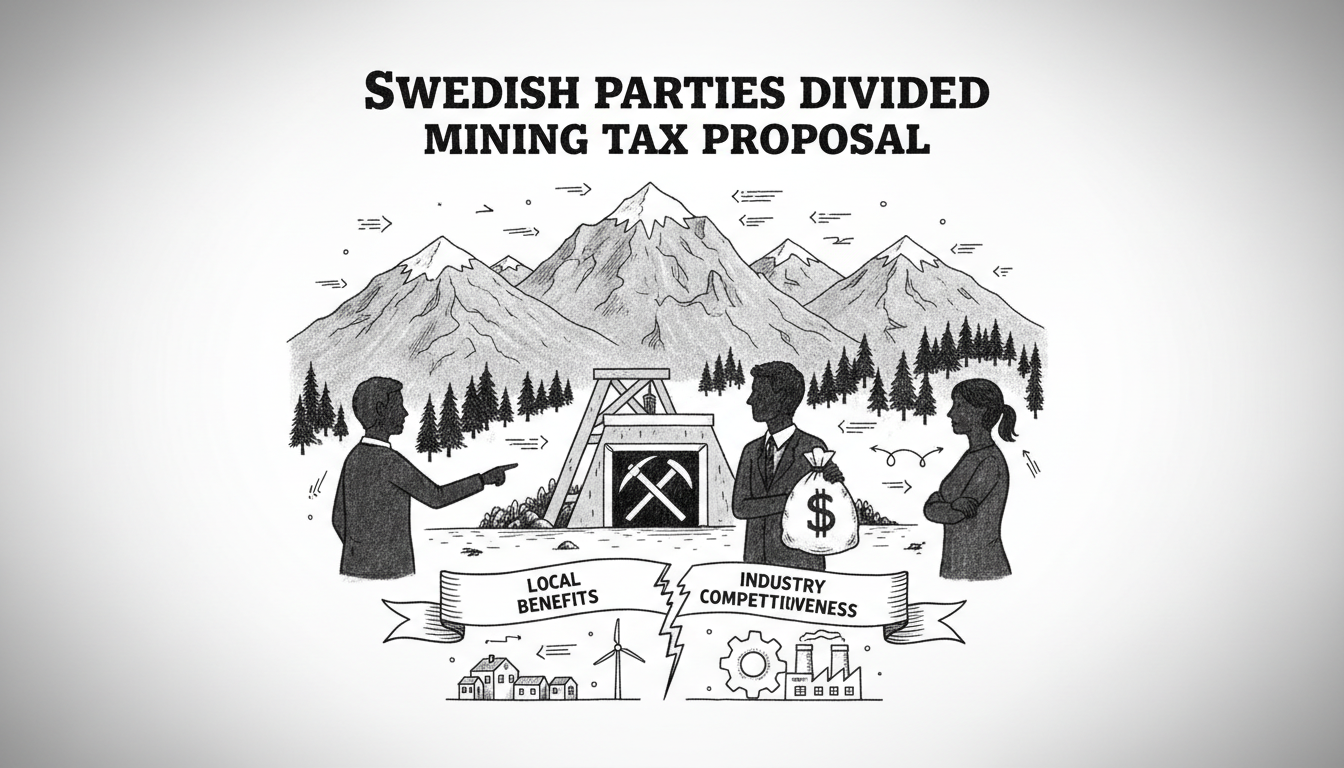Most Swedish political parties want local communities to receive more money from mining operations. Only the Moderates and Liberals oppose new resource taxes. Parties across the political spectrum agree that communities need better incentives to accept mining and resource extraction. But they disagree sharply on how to achieve this.
The Left Party supports a natural resource tax that would return money to communities where extraction occurs. The Sweden Democrats propose regionalizing property taxes for mines, power plants, and server halls.
The Christian Democrats and Social Democrats say they want local compensation but have no specific tax proposals. The Center Party suggests increasing mineral compensation, currently set at 0.2% of extracted mineral value.
The Green Party wants higher mining taxes but hasn't specified which type. They say local residents should receive more benefits from mining profits.
In a statement, the Christian Democrats noted they don't want to lock into a specific tax method. But they believe the state should ensure compensation to both property owners and municipalities when important facilities like mines or power plants are established.
The Sweden Democrats said they've long believed more profits from mining and energy production should stay local. They support regionalizing property taxes for mines and power plants to increase local support and create fairer resource distribution.
The Social Democrats stated that a larger share of mining value should benefit local communities. But they have no specific natural resource tax proposal.
The Left Party wants to return money to areas where natural resources exist. They've proposed nearly 10 billion SEK in resource rebates to municipalities and regions, with most going to northern Sweden.
The Green Party believes local residents should get a larger share of mining profits. They've suggested compensation for wind power and want to ensure communities benefit from increased values.
The Center Party wants to study increasing mineral compensation. Sweden currently has low international compensation rates. They believe more state compensation should go to affected local communities to increase acceptance among landowners and residents.
The Moderates expressed hesitation about new mining taxes. The industry faces tough international competition and employs tens of thousands in northern Sweden. New taxes could risk important industrial jobs, often in towns where mines are the largest private employer.
The Liberals warned that special resource taxes could create exploitation incentives. Municipalities with weak economies might feel pressured to allow unwanted developments. They believe better ways exist to support municipalities.
The debate reveals genuine tension between local community benefits and maintaining Sweden's competitive mining industry. With northern Sweden's mineral resources becoming increasingly important for Europe's green transition, finding the right balance will be crucial.

